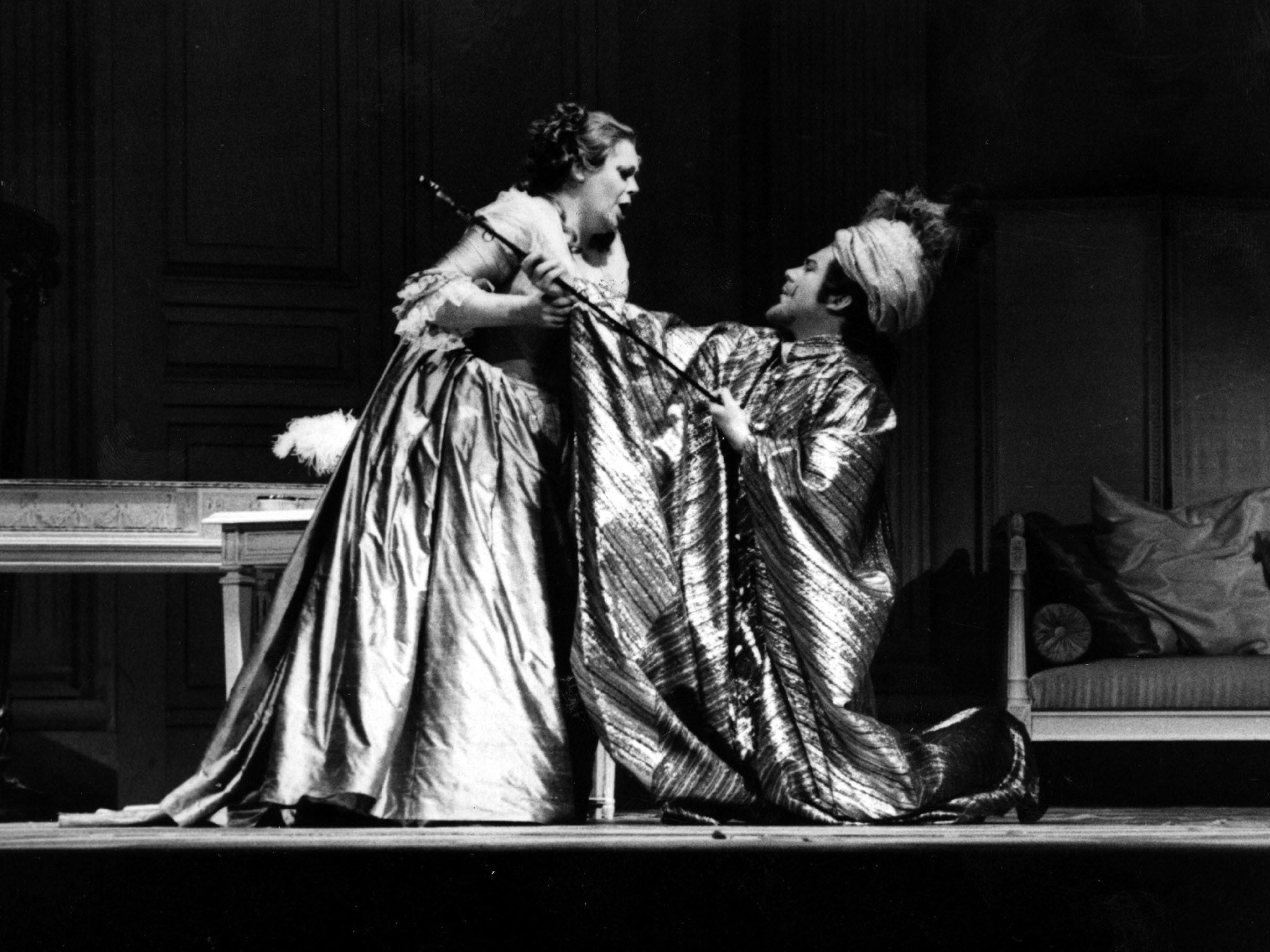Peter Schreier: German tenor admired for interpretations of Bach and Mozart
He was also notable for his performances of Schubert’s lieder and was an accomplished conductor

Your support helps us to tell the story
From reproductive rights to climate change to Big Tech, The Independent is on the ground when the story is developing. Whether it's investigating the financials of Elon Musk's pro-Trump PAC or producing our latest documentary, 'The A Word', which shines a light on the American women fighting for reproductive rights, we know how important it is to parse out the facts from the messaging.
At such a critical moment in US history, we need reporters on the ground. Your donation allows us to keep sending journalists to speak to both sides of the story.
The Independent is trusted by Americans across the entire political spectrum. And unlike many other quality news outlets, we choose not to lock Americans out of our reporting and analysis with paywalls. We believe quality journalism should be available to everyone, paid for by those who can afford it.
Your support makes all the difference.Peter Schreier, who has died aged 84, achieved notable success as one of the leading tenors of his generation as well as an accomplished conductor, and is considered one of the best interpreter of Bach’s Evangelists roles and Mozart’s main tenor roles in the postwar period.
He was born in Messein, northwest of Dresden, in 1935. His father, a church organist and a cantor by profession, gave him his first musical training.
Aged eight Schreier was sent to the Kreuzchor (Cross Choir) boarding school, home of the famous boys’ choir in Dresden in which he soon stood out. Here the choir members and teachers of the boarding school lived in a cellar as a temporary accommodation in the outskirts of the city which had been bombed by American and British forces during the Second World War.
His talent was recognised by choral conductor and composer Rudolf Mauersberger, who began to create compositions with his voice in mind for the solo alto parts. Even before attending the conservatory years later, the young Schreier would travel to France, Scandinavia and Luxembourg on tour with the choir.
He decided to become a professional singer and entered the Dresden conservatory. recalling: “Being in the boys’ choir, I had already learned those subjects – harmony, counterpoint, different styles – so when I entered the conservatory I was prepared like a complete musician.”
He would go on to enter the Dresden Carl Maria von Weber College Music in 1956 and the Dresden State Opera’s training school, while taking on choral and orchestral conducting studies in his spare time.
As part of the Dresden State Opera, Schreier made his professional operatic debut in August 1959 in Fidelio, Beethoven’s only opera. He joined after a successful performance in the opera studio’s production of Il matrimonio segreto, an opera in two acts by composer Domenico Cimarosa, playing the lead character, Paolino.
Following a consistently upward trajectory as a professional tenor, from 1963 he signed with the East-Berlin Staatsoper Unter den Linden, an opera company based in Berlin, becoming its leading lyric tenor after he sang in a guest appearance at the Berlin State Opera.
In the years that followed, Schreier won acclaim in particular for his portrayals of Mozart’s main tenor roles, and as a recitalist in Bach’s oratorios. “Bach treats the voice like a musical instrument,” he said. “Instrumental singing means using the voice with a little bit of vibrato, like an oboe or a flute.”
His interest in the oratorios – large musical compositions for orchestra, choir, and soloists – garnered him an international reputation, where he was known to be a fastidious interpreter of Bach’s Evangelist parts, a challenge for any tenor.
He toured the world, with performances in the Metropolitan Opera in New York (1967), the Vienna State Opera (1967), La Scala in Milan (1968) and the Teatro Colon in Buenos Aires (1969), playing the role of Tamino, principal character in Mozart’s The Magic Flute and one of the first parts he sang back at the boys’ choir in Dresden.
He would also be recognised for his interpretations of Schubert’s Lieder – the composer’s songs written for one voice and piano – and his voice’s impeccable “expressive projection”.
With decades of honing on meticulous interpretations of Bach and Mozart, Schreier emerged in the 1970s as a leading conductor of both composers and a purist of classical works. (He said he was unimpressed by contemporary compositions.)
He was awarded several recognitions for his contributions to classical music during his lifetime, including the title of Kammersanger – a German honorific title meaning “chamber singer” for distinguished singers of opera and classical music – by the governments of the German Democratic Republic and Austria.
Although he continued to teach and conduct until 2018, Schreier retired in 2005 with one last Bach concert, as a conductor and singer, in Prague.
Schreier is survived by his wife Renate and two sons.
Peter Max Schreier, singer and conductor, born 29 July 1935, died 25 December 2019
Join our commenting forum
Join thought-provoking conversations, follow other Independent readers and see their replies
Comments